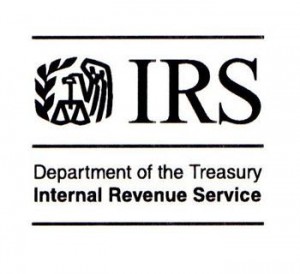The IRS maintains pre-approved plan programs (1) for retirement plans described in I.R.C. § 401(a) (qualified plans), and (2) for annuity contracts or custodial accounts described in I.R.C. § 403(b) (403(b) plans). A new chart shows what types of plans are and are not eligible to use the pre-approved plan program.
Tag Archives: pre-approved plans
New chart: Pre-approved Plan Eligibility Checklist
New article: 403(b) Plan Design and Compliance
(Posted on December 6, 2023 by Carol V. Calhoun)
A new article, Section 403(b) Plan Design and Compliance, discusses the rules that apply when eligible tax-exempt organizations establish tax-sheltered annuities, custodial accounts, or retirement income accounts, as described in Section 403(b) of the Internal Revenue Code (403(b) plans).
This article addresses the following topics:
- 403(b) Plan Overview
- Eligible Employers and Employee>
- ERISA Coverage of 403(b) Plans
- Qualification Requirements
- 403(b) Plan Contributions
- 403(b) Plan Distributions
- Implementation and Operation
- Correcting 403(b) Plan Errors
- Terminating 403(b) Plans
- EP Subcommittee Report: 403(b) Plan Issues and Recommendations
- Advantages and Disadvantages of 403(b) Plans
New Article: Pre-Approved 403(b) Plans
(Posted on December 6, 2023 by Carol V. Calhoun)
On November 21, 2023, the IRS issued Rev. Proc. 2023-37, substantially updating its guidance on preapproved retirement programs described in Internal Revenue Code (I.R.C.) § 403(b) (403(b) plans). A new article, Pre-Approved 403(b) Plans, discusses preapproved 403(b) plans, including their advantages, legal pitfalls, and other issues that an eligible employer may consider when determining whether to convert its existing 403(b) plan into a preapproved plan.
The major topics are:
- What Is a 403(b) Plan?
- What Are the Advantages of a Preapproved 403(b) Plan?
- What Are the Legal Pitfalls of a Preapproved 403(b) Plan?
- What Operational Issues Can Arise for a Preapproved Plan?
- What Practical Issues Can Arise for a Preapproved Plan?
- When Should an Employer Adopt a Preapproved 403(b) Plan?
- Can the Employer Cure Past Plan Issues by Adopting a Preapproved 403(b) Plan?
- What Should an Employer Do If It Did Not Comply with the Written Plan Document Requirement in the Past?
New article: Pre-approved Plan Design and Compliance
(Posted on December 5, 2023 by Carol V. Calhoun)
With the IRS cutting back on determination letters for individually designed plans, more and more employers are switching to pre-approved plans. An article recently published in the Lexis Practice Advisor, Pre-Approved Plan Design and Compliance, discusses practical considerations involved with such plans. Topics include:
- Pre-approved Plan Designs and Favored Regulatory Status
- General Advantages and Disadvantages of Pre-approved Plans
- Types and Requirements of Pre-Approved Plans
- Limitations on Plans That May Be Pre-approved
- Pre-approved Plan Providers
- Implementing Pre-Approved Plans
- Obtaining IRS Opinion Letters
Employers Need to Adopt Pre-Approved 403(b) Plans by March 31, 2020
(Posted on January 30, 2017 by Carol V. Calhoun)
 With the IRS no longer issuing rulings or determination letters on individually designed qualified plans or
With the IRS no longer issuing rulings or determination letters on individually designed qualified plans or
Reflecting this, Revenue Procedure 2013-22 established a program for issuing opinion and advisory letters for
The IRS has now announced in Rev. Proc. 2017-18, 2017-5 I.R.B. 743, that the last day of the remedial amendment period for employers to adopt pre-approved
Obtaining an IRS advisory or opinion letter is not legally required, so long as a plan (in form and operation) complies with
